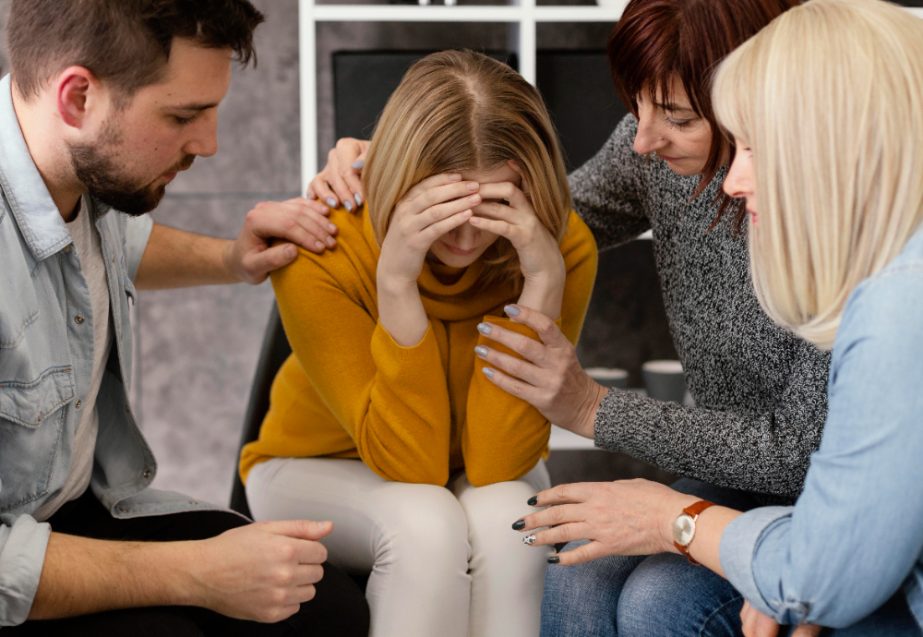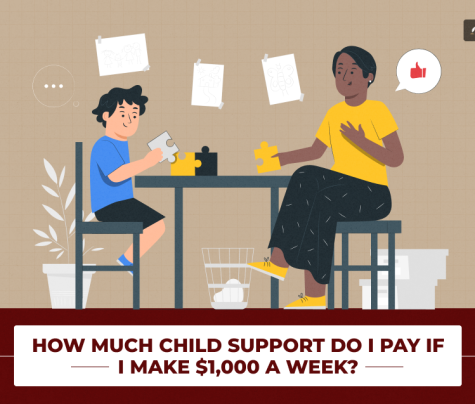
Dealing with divorce can be the most emotional as well as stressful experience that one can have in life.
Whatever the situation that led to such a split or whether you wanted it or not, the separation can turn your whole world upside down, further leading to mental health challenges.
This is where the question comes, “How to cope after divorce?”
There isn’t much data about how many people suffer from mental health challenges after divorce. However, studies indicate that 10-15% of students struggle significantly.
Getting through the depression and grief after divorce can be tough! Thus, it is necessary to learn about the right tools, information, and resources that can help you learn how to cope after divorce.
Hi, in today’s blog, I will provide you with practical tips on how to get through a divorce and also teach you when you must seek divorce counseling.
Don’t worry! If you are in the middle of the grieving process or dealing with your divorce at an early stage, I am here to help you!
How to Cope After Divorce: Here’s an Easy Guide for You!
“Divorce is a challenging journey, affecting every aspect of life—emotional, mental, and financial. Having a seasoned attorney by your side can make a world of difference, providing support, guidance, and a steady hand to help you through each step of the process.”
—says Albany divorce lawyer Kevin Colwell of The Colwell Law Group, LLC.
Your mental health is at stake when your marriage ends unexpectedly. Even when you assume your best foot forward is to quit the marriage, it does not guarantee a seamless process. The separation process can unimaginably upset you.
A typical aspect of divorce is mourning the failed marriage. The unpleasant experience may stick with you for an extended period as you try to process all that transpired.
Hence, knowing how to cope after divorce and the support you can hope for is essential to ease the process. This piece highlights tips you can engage with to move on in life.
Acknowledge Your Feelings
So, how to cope after divorce? The first coping strategy is to acknowledge the presence of hard feelings.
Many who divorce or separate from their partners rightly believe that their feelings are too fresh to move on. Hence, sitting with your present feelings without resisting them is not out of place.
Furthermore, crying can release emotional pain and stress. It is a coping mechanism for a challenging situation.
Bottling up your feelings is not advisable—it is a repressive coping method. You may document your feelings in a journal to help you keep track of changes over time.
Most importantly, learn to accept. Try redirecting your thoughts if you feel like falling down the path!
Instead of thinking, “Only if I had,” try to remind yourself, “The divorce happened, and there’s nothing that can be done now.”
It won’t be that easy to accept everything overnight. So, it is okay if you take some time. You just have to try treating yourself kindly during the process.
Speak with Your Children
If you have children with your ex-spouse, they also need your support during this troubling period.
As you transition into a new chapter, you must make the kids feel safe, as they may not fully grasp what is happening.
Be honest and transparent with them about the dissolution and ensure you answer their questions about the subject.
It is not uncommon for kids to feel guilty, anxious, and angry during this period. It may also hinder their academic progress. You may feel they are withdrawing from you.
Help them process their intense emotions. If necessary, seek professional assistance.
Remove Everything Reminding You of Your Ex
Having your ex’s belongings hanging around the home may upset you daily. You can easily cope with the divorce and grieving process.
All you have to do to remove all the constant reminders of your ex-spouse around your home. Advisably, buy new belongings that have no ties to your failed marriage.
For instance, you may replace the first bed or couch you bought together for your first home.
It is understandable if you cannot let go immediately. Take appropriate steps to help you heal, no matter how small they appear.
Surround Yourself with Relatives
It is not the time for you to be lonely. Learn how to lean on relatives when battling a divorce or separation.
You can decide to stay with family during the divorce mediation and negotiations. Use this time to seek their support and assistance anywhere you feel helpless.
It is vital to feel seen and heard during this troubling moment. Relatives can assist you with practical activities, like moving your belongings from your ex’s home, and listen to you while you work on your emotions.
Exercise Regularly
Exercise is beneficial to your overall physical health. Research has also shown that it helps mental health numerous times. Specifically, it enhances the physical well-being of people witnessing anxiety and depression by easing their symptoms.
Exercise energizes you and makes you feel happier. It is a pathway to enjoying life naturally. It releases endorphins in your body to give a natural “high.”
Choose an exercise suitable for your body. You may prefer yoga, gardening, walking, or any other light activity.
If you prefer vigorous exercise, hike challenging terrain, swim, or sprint. To reap the maximum benefits, exercise for at least 35 minutes daily.
Find a Hobby
Hobbies are effective in relieving divorce stress and easing emotions. Carefully find the hobbies that excite you the most and enroll in classes.
For instance, you may learn to play musical instruments, play sports, or make arts and crafts. Selecting a hobby and committing yourself to it can benefit your emotional health.
It will also simultaneously distract you from the negative feelings surrounding your divorce or separation. You may also build or join a community of people with similar interests.
Spend Time with Loved Ones or Friends
Build a support group of friends to help you advance in a divorce. You must try with friends who will help you take your mind off the divorce. This is a very common method for how to cope after divorce.
Friends’ support during divorce mediation and negotiations is crucial to your healing.
It is quicker to heal in a divorce if you have supportive friends who care about your well-being.
However, negative emotions may tempt you to withdraw from friends and relatives. It could be a sign of depression in some cases.
You may feel it is needless to socialize with friends and engage in fun activities. However, social interaction significantly benefits your mental and physical well-being.
Contact a mental health professional if your withdrawal pattern negatively affects your relationships.
Religion May Comfort You
Religion can be the plausible answer for how to cope after divorce. If you are religious, you can seek guidance from your faith leaders.
Alternatively, you can reach out to a mentor for advice. Seeking help from a faith leader or mentor will help you get the deserved care from a leader during and after your divorce.
Consider the Dating Scene
After a divorce, you may look forward to having a romantic affair with someone else. Fortunately, studies say flirting reduces stress.
Thus, you may venture into casual dating instead of something serious that may eventually lead to another heartbreak.
You may also meet a compatible partner at the early stage of your divorce and connect with them. You can meet new people through family and friends, dating apps, and other avenues.
Embark on this experience at your own pace, and do not judge the new relationship based on your experience.
Do not rush into a new affair. Allowing yourself to heal before proceeding makes the experience with a new partner better and more successful.
Go to Therapy
It is beneficial to seek therapy if you are experiencing challenges during and after your divorce.
A therapist will help you determine the best course of action to deal with anxiety, depression, and anger from the incident. They will also offer you companionship while going through this draining situation.
Do not go through this turbulence alone, especially when it begins to show that your self-esteem is taking a downward trend.
Conclusion
There is no timeline for healing, and everyone should learn to move at their own pace. So, if you are wondering how to cope after divorce, I think this blog has all the answers!
Contacting a mental health professional for help if you are struggling to cope with the emotions that often plague divorce is advisable.
Fortunately, these days, you can hop on online therapy for quicker results.
Read More:
- Divorce Mediation vs Litigation: Which Is Right for You?
- The Cheapest Way to Get a Divorce With a Child in 2025
- 12 Ways to Keep Your Divorce Civil (Even If Your Ex Is Difficult)











0 Reply
No comments yet.